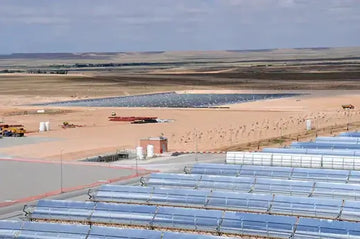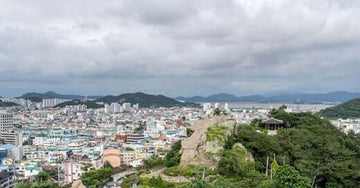The USAID Clean Energy Finance Facility for the Caribbean and Central America (CEFF-CCA) recently held a webinar during which a group of “market-making,” clean energy pioneers explained what they’re doing to help build a structural market framework and spur development of local, environmentally friendly, renewable energy and energy efficiency projects across the region.
June 1 marked the start of another Atlantic hurricane season in the Northern Hemisphere, raising concerns regarding the vulnerability of Caribbean and coastal Central American nations faced with another round of extreme weather events. The landfall of three major hurricanes in 2017 – Harvey, Irma and Maria – accounted for nearly all the 2017 season’s damages – a record amount of at least USD282.16 billion. Another major hurricane, Nate, was the worst natural disaster in Costa Rica’s history.
The 2017 Atlantic hurricane season also sparked a concerted effort on the part of governments and public and private sector organizations not only to restore grid power in places most affected, but to begin the work of designing and building the foundation for an electricity generation and distribution system that will prove more reliable, resilient, accessible, affordable and environmentally friendly. Solar Magazine listened in on CEFF-CCA’s webinar to gain and share insights regarding the multilateral, public-private partnership’s latest efforts to realize a region-wide, clean energy transition.
A three-year, USD10 million program to spur the clean energy transition in the Caribbean and Central America
Implemented by ECODIT, CEFF-CCA is a three-year (2015-2018), $10 million grant program supported by USAID, the US Dept. of State, the US Trade and Development Agency (USTDA) and the US Overseas Private Investment Corporation (OPIC). CEFF-CCA grant program participants are effectively serving as clean energy market-building pioneers in the Caribbean and Central America.
CEFF-CCA’s July 23 webinar was the second in a three-part series elaborating how the USAID-led grant program is helping foment changes in regional energy markets that increase clean energy access. All told, USAID CEFF-CA is working with venture capitalists, private sector businesses, academia and civil society to promote and foster vital, self-sustaining clean energy markets in 20 Central American and Caribbean countries.
The first CEFF-CCA webinar, which took place in June, zoomed in on some of the program’s innovators and change-makers – organizations that have capitalized on CEFF-CCA grant funding and other resources to introduce new clean energy technology, new modes of operation, or new business models and applications that are fostering clean energy access in the Caribbean and Central America.
The focus of the second webinar shifted to program partners that are in effect erecting the “scaffolding,” or “structural framework” critical to the creation of vital, robust markets, whether they be for clean energy or any type of product or service. Furthermore, via CEFF-CCA USAID is helping pioneering clean energy finance companies and institutions safely navigate and pass through the so-called new technology, start-up and market-building “Valley of Death,” CEFF-CCA Chief of Party Jorge Barrigh explained during the webinar’s introduction.
Executives representing clean energy finance and investment groups, a strategic market consultant and a market, customer, engineering and technical services consultant active in Central America and the Caribbean made presentations during the July 23 webinar. So did an executive from a Honduran university program that’s emerging as a hub for renewable energy development market research and development assistance.
MGM-Innova raised some USD75 million for an initial private equity fund – MGM Sustainable Energy Fund I – and is investing that capital in the development of energy efficiency and distributed, renewable power generation projects across the Caribbean-Latin America region, from Colombia to Mexico, Senior Managing Director Patrick Doyle explained during the webinar. About 60 percent of the fund’s capital is invested in energy efficiency projects while distributed, renewable energy projects account for about 40 percent.
Among other clean energy projects in its portfolio, MGM-Innova financed deployment of a 192-kWp hybrid solar PV-diesel generation and distribution system at Red Frog Beach, a residential island community in Panama’s Caribbean Bocas del Toro province, as well as financed deployment of a solar PV system and energy efficiency upgrades, including new water chillers and an air-conditioning system, for the Hotels and Language Institute in Costa Rica.




